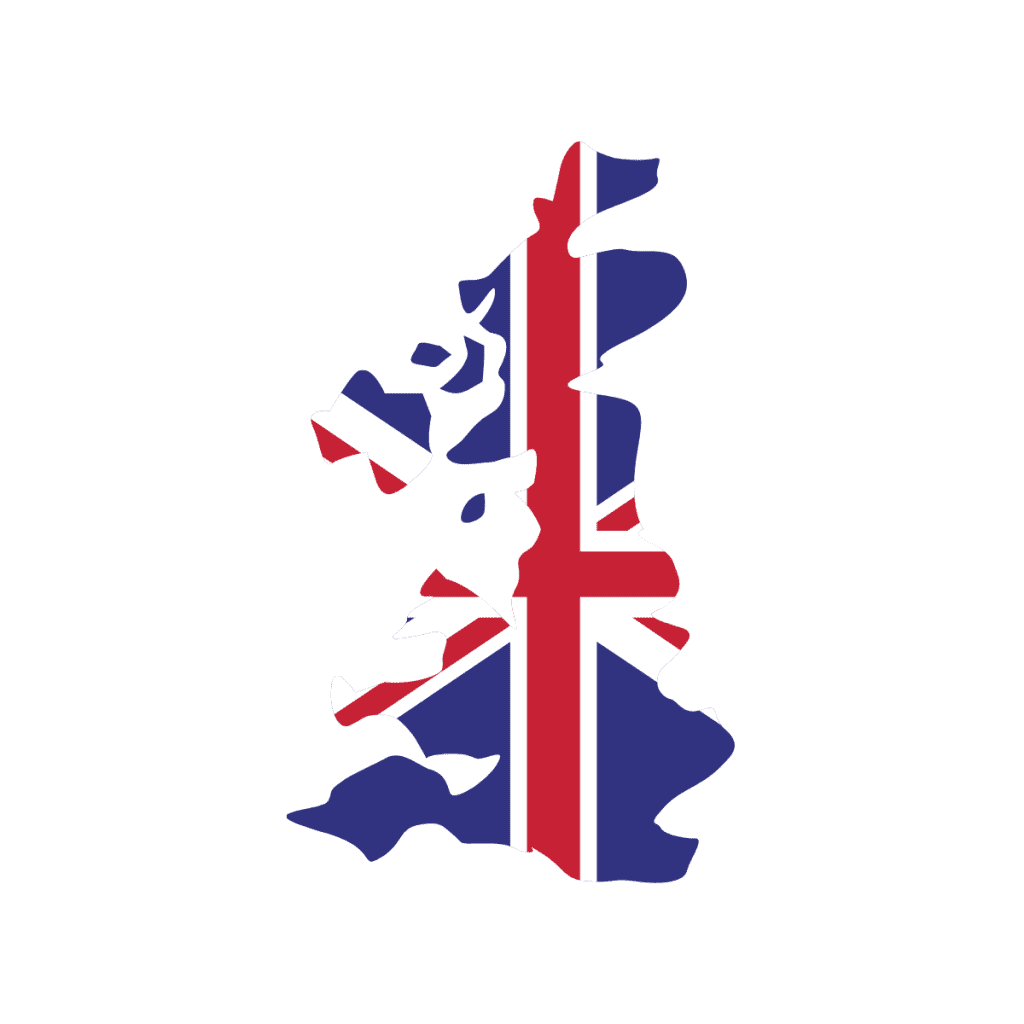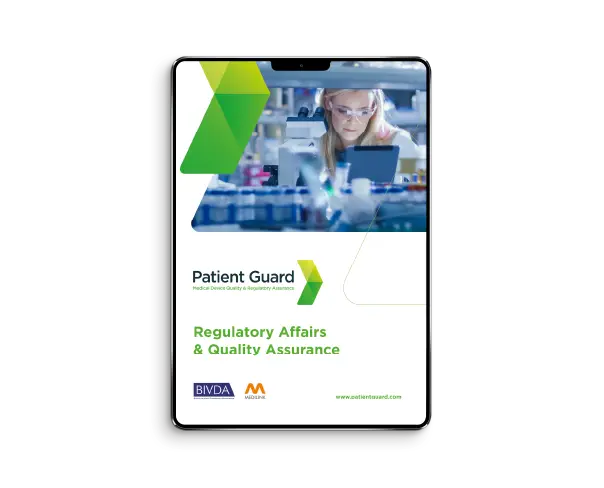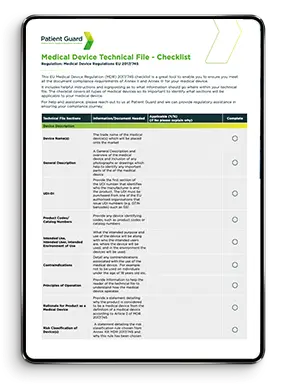UK Responsible Person (UKRP) - Medical Devices
UK Responsible Person (UKRP) for medical devices came about when the United Kingdom (UK) left the European Union (EU) becoming what is known as a 3rd country. This meant that the UK would no longer follow new EU legislation.
The EU repealed the Medical Device Directives in 2017 and brought in new Medical Device Regulations (The Medical Device Regulations (MDR) EU 2017/745 and the In Vitro Diagnostic Regulations (IVDR) EU 2017/746). However, due to the UK leaving the EU in 2016 the UK did not adopt the EU MDR and IVDR.
The UK follows the UK Medical Device Regulations 2002 (as amended), these regulations are based on the old EU Medical Device Directives. The UK Medical Device Regulations 2002 were updated post Brexit to make previsions for the aspects of the EU law that would not be applicable to the UK anymore. One of these requirements was the need to have a UK equivalent of the EU Authorised Representative. The UK Regulations introduced the term and requirement for a UK Responsible Person (UKRP).
What is a UKRP?
Manufacturers who are not registered businesses in the UK but wish to place medical devices or In Vitro Diagnostics (IVDs) on the UK market, are not allowed to do so without having in place an agreement with a UK registered organisation. This organisation is the UK Responsible Person, and represents and registers the manufacturers medical devices and IVDs with the Medicines & Healthcare products Regulatory Agency (MHRA).
All Medical Device and IVD manufacturers who place Medical Devices or IVDs on the UK market are required to register as a manufacturer with the MHRA, including class I medical device manufactures who self certify, and self certified IVDs.
What does the UKRP do?
The UKRP must provide written evidence that they have the manufacturer’s authority to act as their UK Responsible Person. Importers and distributors are not required to appoint a UK Responsible Person.
The UKRP acts on behalf of the non-UK manufacturer to carry out specified tasks in relation to the manufacturer’s obligations. As noted above, this includes registering the manufacturer’s devices with the MHRA before the devices can be placed on the UK market.

Responsibilities
The responsibilities of the UK Responsible Person are set out in the UK MDR 2002. Here are some of the activities carried out by the UK Responsible Person:
- Ensure that the declaration of conformity and technical documentation have been drawn up and, where applicable, that an appropriate conformity assessment procedure has been carried out by the manufacturer.
- Keep available a copy of the technical documentation, a copy of the declaration of conformity and, if applicable, a copy of the relevant certificate, including any amendments and supplements for inspection by the MHRA.
- In response to a request from the MHRA, provide the MHRA with all the information and documentation necessary to demonstrate the conformity of a device.
- Where they have samples of the devices or access to the device, comply with any request from the MHRA to provide such samples or access to the device.
- Where they have neither samples of the device nor access to the device, communicate to the manufacturer any request from the MHRA to provide such samples or access, and communicate to the MHRA whether the manufacturer intends to comply with that request.
- Cooperate with the MHRA on any preventive or corrective action taken to eliminate or, if that is not possible, mitigate the risks posed by devices.
- Immediately inform the manufacturer about complaints and reports from healthcare professionals, patients and users about suspected incidents related to a device for which they have been appointed.
- If the manufacturer acts contrary to its obligations under these Regulations:
- terminate the legal relationship with the manufacturer; and
- inform the MHRA and, if applicable, the relevant Approved Body of that termination.
Do you need a UK Responsible Person?
If you are a Medical Device and/or IVD Manufacturer without a registered business in the UK, then you do need to have a UK Responsible Person. This includes businesses based inside the EU. After the UK left the EU, all EU based Medical Device and IVD manufacturers who sell into the UK are required to have a UK Responsible Person.
If you have identified that you need a UKRP. Then Patient Guard can represent you as your UK Responsible Person. We have helped many Medical Device and IVD Manufacturers with their UK compliance needs.
FAQs
A UK Responsible Person (UKRP) is a legal entity based in the United Kingdom that acts on behalf of a non-UK medical device or IVD manufacturer to ensure compliance with the UK Medical Device Regulations 2002 (as amended) and facilitate market access in Great Britain (England, Scotland, and Wales).
Key insight: The UKRP is mandatory for all non-UK manufacturers intending to sell medical devices in Great Britain post-Brexit.
Any medical device or IVD manufacturer based outside the UK must appoint a UK Responsible Person to market their products in Great Britain.
Why it matters: Without a UKRP, non-UK manufacturers cannot legally place their devices on the market in Great Britain.
The UKRP plays a critical role in ensuring regulatory compliance. Their responsibilities include:
- Registering Devices: Submitting device information to the Medicines and Healthcare products Regulatory Agency (MHRA).
- Technical Documentation Review: Verifying that the manufacturer’s technical documentation is complete and compliant.
- Labeling Verification: Ensuring the device label includes the UKRP’s name and address.
- Communication: Acting as a liaison between the manufacturer and MHRA.
- Post-Market Surveillance: Assisting with vigilance and incident reporting.
- Document Retention: Keeping copies of the manufacturer’s Declaration of Conformity and technical documentation for at least ten years.
Pro tip: An experienced UKRP can streamline your compliance process and reduce regulatory risks.
Medical device labels marketed in Great Britain must include:
- The name and address of the UK Responsible Person.
- The manufacturer’s name and address.
- The UKCA mark (or CE mark, if allowed during the transition period).
- Relevant warnings, intended use, and other device-specific details.
Key takeaway: Incorrect labeling is a common reason for non-compliance. Ensure all label information is accurate and up-to-date.
The UKCA (UK Conformity Assessed) marking replaces the CE marking for medical devices in Great Britain. The UKRP ensures that the manufacturer:
- Meets UKCA marking requirements.
- Provides the necessary technical documentation and Declaration of Conformity.
- Registers the UKCA-marked device with the MHRA.
Important note: CE marking is still accepted in Great Britain until June 30, 2026, for certain devices, but this requires oversight from the UKRP.
Failure to appoint a UKRP results in:
- Inability to legally market devices in Great Britain.
- Potential enforcement actions, including fines and product recalls.
- Loss of market access and reputational damage.
Key insight: Appointing a UKRP is not optional—it is a regulatory requirement for non-UK manufacturers.
Device registrations with the MHRA must be updated whenever:
- A new device is introduced to the market.
- There are changes to existing device information (e.g., labeling, intended use, or manufacturer details).
- Devices are withdrawn from the market.
Best practice: Work closely with your UKRP to ensure timely updates and avoid penalties.
The UKRP assists with post-market surveillance by:
- Monitoring adverse events and reporting them to the MHRA.
- Supporting field safety corrective actions (FSCAs) or product recalls.
- Ensuring ongoing compliance with UK vigilance requirements.
Why it matters: A strong post-market surveillance system ensures continued product safety and regulatory compliance.
Yes! Patient Guard offers comprehensive UK Responsible Person services, including:
- Device registration with the MHRA.
- Technical documentation review and support.
- Compliance guidance for UKCA marking.
- Post-market surveillance and vigilance support.
- Dedicated customer service to address regulatory queries.
Why choose Patient Guard: With years of experience and expertise, we simplify compliance and ensure your devices meet all UK regulatory requirements.
Yes, these are distinct roles:
- UKRP: Ensures regulatory compliance and acts on behalf of the non-UK manufacturer.
- Importer: Ensures devices meet UKCA or CE marking requirements and are correctly placed on the market.
Key takeaway: While both are mandatory, their responsibilities are different but complementary.
When selecting a UKRP, consider the following:
- Experience: Look for expertise in handling your device type and understanding UK regulations.
- Location: The UKRP must be physically based in the UK.
- Reputation: Verify their track record with other manufacturers.
- Responsiveness: Choose a UKRP that offers timely and reliable communication.
Pro tip: Partnering with an experienced UKRP like Patient Guard ensures regulatory compliance and peace of mind.




